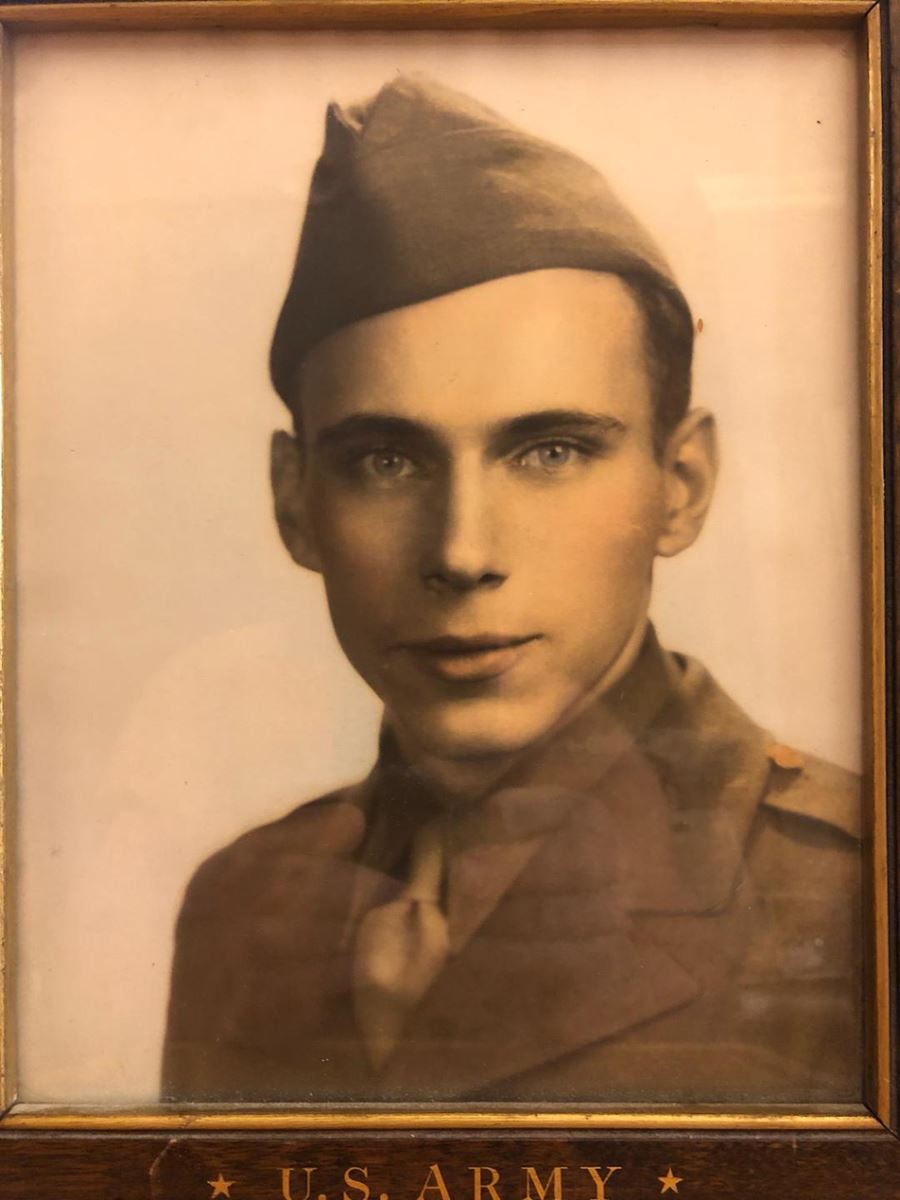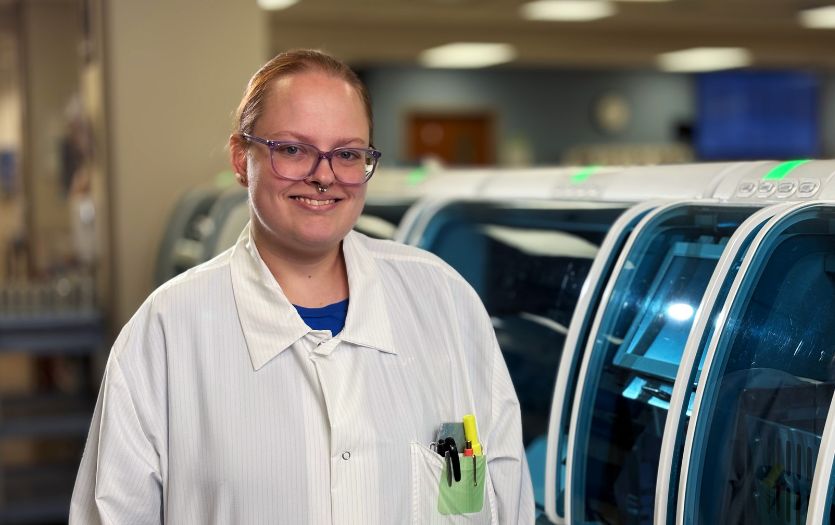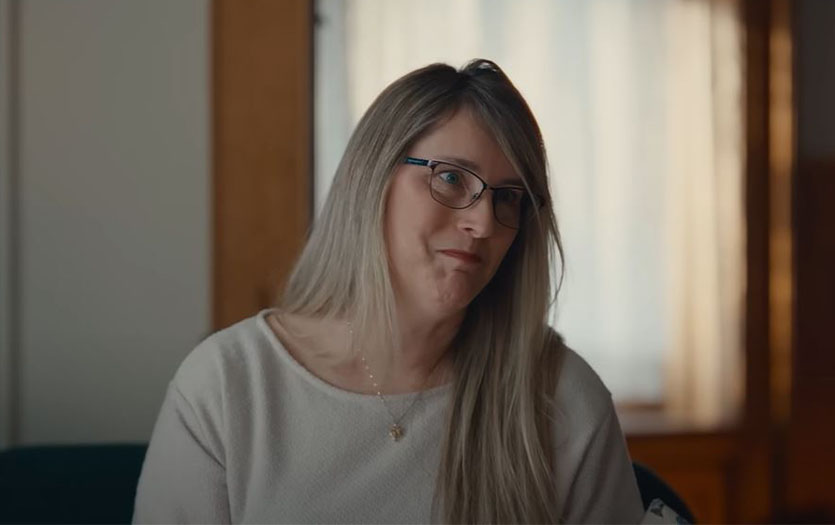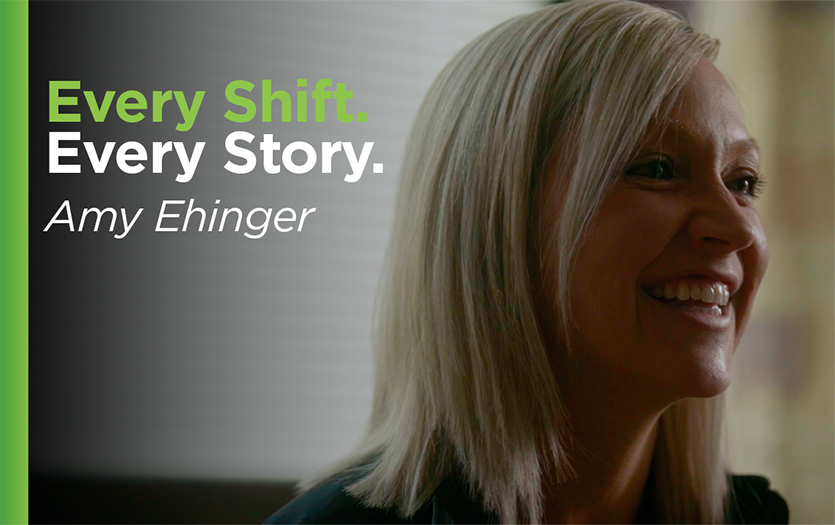
In recognition of National Colorectal Cancer Awareness Month, we invited James W. Edlund, MD, PPG – Wound Care, Parkview Health, to share his family’s story.
Christmas Day, 1972, will be a day my family and I will never forget. We didn’t spend the day celebrating, enjoying holiday festivities and gifts; we spent it in a hospital as my father underwent emergency surgery.
The story of that life-changing day actually began several months earlier, when my father began experiencing pain and sleeping a lot. I was in my third year of medical school at the time and had become increasingly worried about his symptoms.
To provide some background, my dad was a proud man, and he did not like doctors. He was a World War II veteran and went to school on the GI Bill after the war to become a chemical engineer. After a few years, he was ready for a change and went back to school to teach. He taught for several years, eventually received his master’s degree and became a superintendent of schools. He truly worked his way up and fought hard for all that he accomplished.
As my dad’s symptoms worsened, he eventually swallowed his pride and asked if I would feel his belly. I pushed down on his abdomen, I felt a mass and I knew. Although it was unofficial, my first diagnosis of cancer was for my own father.
We were able to get him into the University of Michigan, and the medical team sent him for X-rays on Christmas Eve. On Christmas Day, they performed emergency surgery on my dad to repair a life-threatening perforation, or hole, in his gastrointestinal tract.
The X-ray images showed metastatic tumors across his liver. The medical team briefly considered performing an additional surgery to remove the tumors but determined it wouldn’t be possible.
My dad spent a few months receiving chemotherapy before experiencing a few months of remission. The relief was short lived, however, and my father eventually succumbed to the disease. He didn’t make it to the next Christmas. He was only 53.
Family life after cancer
Everything changed that Christmas, and my dad’s diagnosis and early death caused a family crisis that affected us for years.
My mother was deprived of her husband — no shared retirement, no golden years spent together. My father was only 10-12 years from retirement and his passing created an emotional and financial burden for my mother. She lived on a fixed income of survivor benefits and her teacher’s pension. Eventually, she trained as a real estate agent and, a few years later, she moved to Fort Wayne to be closer to family members. She would go on to work at Southtown Mall for several years until she retired. She was in her early 50s when my father died, and she lived to be 87.
My sisters handled it differently. My older sister, a nurse, was already married at the time. My younger sister, however, was probably the most troubled by my father’s death. She was only in high school and it really affected her to lose her dad at such a young age. She eventually got her degree and is now a professor, but it took years for her to recover from our loss.
As for me, my father’s illness and treatment changed the direction of my career as well as my life. My original plan, before my father got ill, was to go to the University of Vermont and be an internist, but I changed my plans so I could stay near my home and family.
During an internal medicine rotating internship at Grand Rapids, I did a rotation in general surgery and made an important decision — I would go into surgery and no longer pursue internal medicine. I was thankful to have a long career as a colorectal surgeon, and, in 38 years, I performed 30,000-40,000 colonoscopies and surgeries and saw countless patients and their loved ones whose lives were changed forever by colorectal cancer. I’m now medical director for Parkview’s Wound Care program, where I continue to see so many people affected by colorectal cancer.
Lessons learned through tragedy
As you can imagine, my father’s illness influenced how I practice medicine, especially in how I interact with patients and their loved ones. When my father went into that hospital for X-rays on Christmas Eve, he didn’t know he had cancer, and, after his care team made the diagnosis, they didn’t share the news with him. In fact, he didn’t learn he had cancer until an oncologist unexpectedly showed up at his hospital room. No one should ever be left in the dark like that.
No one wants their decisions made for them and that’s something that I learned early on, through my father’s experience, that I carry with me with each patient I treat. I learned how important it was to make decisions with my patients and set goals. Sometimes one more Christmas is enough.
My father’s illness also sparked my passion for preventive medicine, because colon cancer is one of the only cancers that is preventable through regular screening. In addition, it’s highly predictable and one of the most treatable cancers when caught in the early stages. Early diagnosis leads to a cure for 90 percent of those diagnosed, but that number drops to 50 percent if the cancer isn’t detected until symptoms appear. We have the technology to prevent and cure colorectal cancer, but only if people are screened.
If you have a family history of colorectal cancer or are age 50 or older and haven’t had a colorectal screening, contact your doctor’s office today to schedule an appointment to talk about this important preventive screening. Similarly, if you are experiencing any symptoms, such as rectal bleeding, they need to be investigated, so please contact your doctor.
My family’s experience with colon cancer does not have to be yours.



